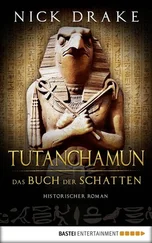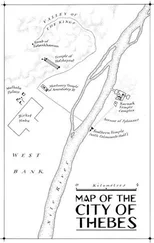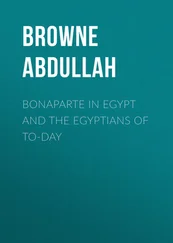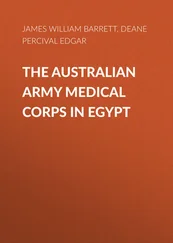Nick Drake - Egypt
Здесь есть возможность читать онлайн «Nick Drake - Egypt» весь текст электронной книги совершенно бесплатно (целиком полную версию без сокращений). В некоторых случаях можно слушать аудио, скачать через торрент в формате fb2 и присутствует краткое содержание. Жанр: Исторический детектив, на английском языке. Описание произведения, (предисловие) а так же отзывы посетителей доступны на портале библиотеки ЛибКат.
- Название:Egypt
- Автор:
- Жанр:
- Год:неизвестен
- ISBN:нет данных
- Рейтинг книги:5 / 5. Голосов: 1
-
Избранное:Добавить в избранное
- Отзывы:
-
Ваша оценка:
- 100
- 1
- 2
- 3
- 4
- 5
Egypt: краткое содержание, описание и аннотация
Предлагаем к чтению аннотацию, описание, краткое содержание или предисловие (зависит от того, что написал сам автор книги «Egypt»). Если вы не нашли необходимую информацию о книге — напишите в комментариях, мы постараемся отыскать её.
Egypt — читать онлайн бесплатно полную книгу (весь текст) целиком
Ниже представлен текст книги, разбитый по страницам. Система сохранения места последней прочитанной страницы, позволяет с удобством читать онлайн бесплатно книгу «Egypt», без необходимости каждый раз заново искать на чём Вы остановились. Поставьте закладку, и сможете в любой момент перейти на страницу, на которой закончили чтение.
Интервал:
Закладка:
He took one more step towards me.
‘You have looked into the dark mirror of the truth, so you now understand.’
He touched his heart. And when he smiled, I attacked.
Our swords sliced through the moonlight. His was made of obsidian; a long, black, deadly, shiny blade, honed to the finest edge. This was what had cut off the head of my friend. This was the blade that had sliced him apart, while he was still alive.
We fought intently, closely, our faces almost intimate, our breaths close in the cold air, our swords desperate to find each other’s hearts.
The obsidian blade whispered through the silence and I twisted out of its dark path, parrying each brilliant thrust and slice with my own curved blade, battling to maintain momentum. Suddenly his sword sliced into the muscle of my right forearm. My blade clattered across the stones, and blood slipped from the perfect cut.
He leapt back, light as a cat on his feet, and disappeared around a dark corner of the street. I tore a piece out of my robe to bind the wound, and stood still, listening to the silence. Then I picked up my sword in my left hand and moved slowly around the corner. The shadowy doorways seemed empty. Up ahead was a derelict space between two buildings, where a large house was being reconstructed. I knew he must be in there. I knew he was leading me away from his mansion.
As I entered the darkness, sand and grit crunched lightly under my sandals. I peered into the gloom. Here and there slants of moonlight entered through the timbers of the roof. I inched forward, my sword ready, trying to see into the gloom. And then I heard something, the faintest whisper-the obsidian blade slicing through the air. Just in time, I threw myself down, and as it flashed over me, catching the moonlight, I twisted around on the ground, drew my old dagger from its place across my chest, and threw it, left-handed, with all my strength. There was a moment of silence; and then Obsidian’s face loomed out of the shadows. The dagger was planted in his chest. He looked curiously at the bloom of black blood that stained his linen robe, made luminous by the moonlight. And then, to my astonishment, he offered me the obsidian blade.
‘Take it. Kill me. For Khety. For the dead boys. Taste your revenge. Do it now …’ he said quietly, with a strange remorse.
I hesitated. Was he now himself again? But then the wrong smile crept over Obsidian’s face. He began to draw the dagger out of his chest. Blood followed. He hissed in some kind of dark rapture. Then he pointed the dripping blade at me.
‘I knew it … you are too weak even to take the revenge you have sought for so long,’ he said. ‘But I am perfect.’
And in the moment it took him to smile, I grasped the obsidian knife with both hands, and with one absolutely silent motion, the blade cut through the dark air, and through his flesh and bones as if they were insubstantial as a spirit’s. His torso remained standing, his arms moving as if in apology or confusion; his blood pulsed out of his neck in gushes that quickly lost their strength, until his body slipped over and fell to the ground. It jerked a few last times, and then lay still.
His head had rolled away; I scrambled to find it, then ran into the street with it still warm, still full of secrets, in my hands. I held it up, dripping, by the hair, in the last of the moonlight. His eyes were open wide, staring, as if he had seen something that truly surprised him.
‘ What do you see now? Do you see the truth and the light? Or just the darkness?’ I cried.
But his features were changing again. Slowly, and in death, I could once more recognize not Obsidian, but Nakht, the man I had called friend nearly all my life.
I walked to the Great River. The vast waters were black under the late-night sky. I sat down, and studied the head: this simple skull, with its once-mutable, lively face, had contained secrets, and languages and ideas, and the knowledge of the stars and the Gods; it contained brilliance and mercilessness, crimes and cruelties, and somewhere, somehow, even love. But those things were all gone now. With the last of my strength, I threw the head as far out as I could. It landed with a faint splash, and vanished.
I stayed there watching the great mysteries of the perpetual waters running by me in the last of the darkness of the night. I was shivering uncontrollably again. The opium sang in my blood, demanding to be satiated. But I would never take it again. I had to face myself before I could return home. I felt unclean. So I stood in the Great River, and began to pour its waters over myself, over and over, scrubbing at the agony in my flesh, and heard myself begin to scream.
42
Horemheb’s divisions occupied the city the following day. Before dawn his ships sailed into the harbour in silence. As Ra rose upon a new day, his regiments moved through the silent streets quietly and efficiently. There was no resistance. There was no disorder. Shops remained closed, and people stayed at home, afraid, waiting to see what would happen, hoping the storm would break and pass into a new peace. The Medjay submitted obediently. My old foe Nebamun remained at the head of the force, and was ready and waiting for the general himself, offering his congratulations. Horemheb’s officers marched into the bureaucracies and the temples, and new men, who swore their loyalty to the army, were given positions of authority. Those who were associated with the old regime were marched out, under arrest, in daylight, to await their trials in the jails of the city. But no one disappeared in the dark of night. There was no violence. There were no summary executions. Elite men hid in their mansions, and waited to see what would happen. Horemheb’s reign began, as he had said it would, with the restoration of order. And the next day the shops opened, and people returned to work.
I visited the general, and gave him the location of the merchant’s warehouse. That night, after the fall of the new curfew, he commanded his most elite squad. They took their positions along every street and every alleyway in the moonlight, armed with axes, staves, swords or spears. Up on the rooftops, archers waited, poised and silent. But instead of breaking down the great wooden doors with a battering ram, Horemheb commanded the archers to fire arrows dowsed in flaming bitumen into the compound of the warehouse. These hissed up into the night sky, brief shooting stars, and arced down into the unseen interior. After a moment, there were shouts from within as fires sparked; then another round of arrows shot up into the sky, and down into the warehouse. As the fires took hold, smoke began to rise up, and a glow could be seen inside the building; the shouts of men trying to rally their forces came clear over the high walls. A third shower of arrows lit up the sky, and now fierce red flames took possession of the warehouse, shooting up above the walls.
Horemheb nodded, and his foot soldiers gathered before the doors. A figure suddenly appeared at the top of the high wall, his tunic and hair on fire, dancing in agony, and dropped to the ground; instantly the back of his skull was dashed by Horemheb’s men. There were more shouts within, and then the great wooden doors began to open; thick smoke billowed out, and a gust of heat and flame, and men, blinded and staggering, many on fire, ran screaming towards Horemheb’s men, and were swiftly dispatched with blows to the skull. Quickly there was a long line of dead bodies laid out neatly in the street, and the fire burned on, lighting up the night sky; but Horemheb had imposed a curfew, and no one dared to come out to see what was happening.
By dawn, the fire had gutted the warehouse, and burned itself out. Horemheb strode among the ruins, and I followed him, taking in the carnage and chaos around me. Many more bodies, burned into twisted, inhuman shapes, lay scattered about. We looked at the ashy remains of cages and cells, where kidnap victims must have been held; we found the storage rooms where the opium would have been kept; and finally we stood in the treasury, where the vast golden profits of Nakht’s opium trade, tarnished by the heat of the fire, spilled across the floor. There was enough gold there to buy a new army. Horemheb kicked at it, contemptuously.
Читать дальшеИнтервал:
Закладка:
Похожие книги на «Egypt»
Представляем Вашему вниманию похожие книги на «Egypt» списком для выбора. Мы отобрали схожую по названию и смыслу литературу в надежде предоставить читателям больше вариантов отыскать новые, интересные, ещё непрочитанные произведения.
Обсуждение, отзывы о книге «Egypt» и просто собственные мнения читателей. Оставьте ваши комментарии, напишите, что Вы думаете о произведении, его смысле или главных героях. Укажите что конкретно понравилось, а что нет, и почему Вы так считаете.











